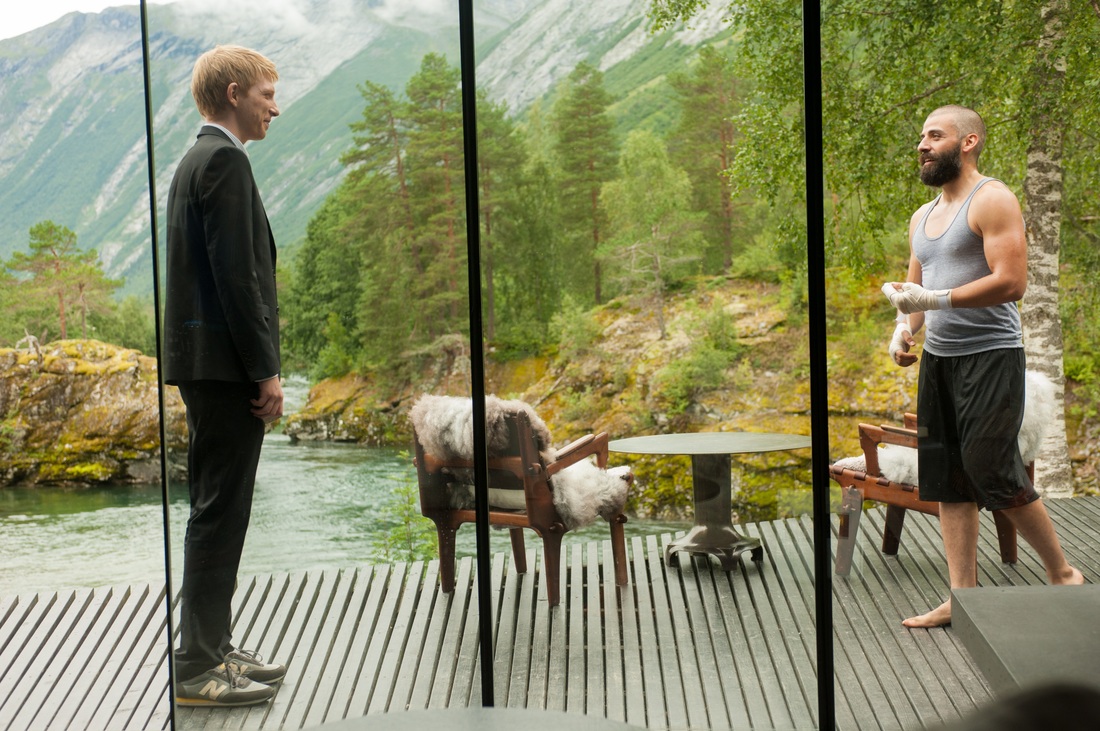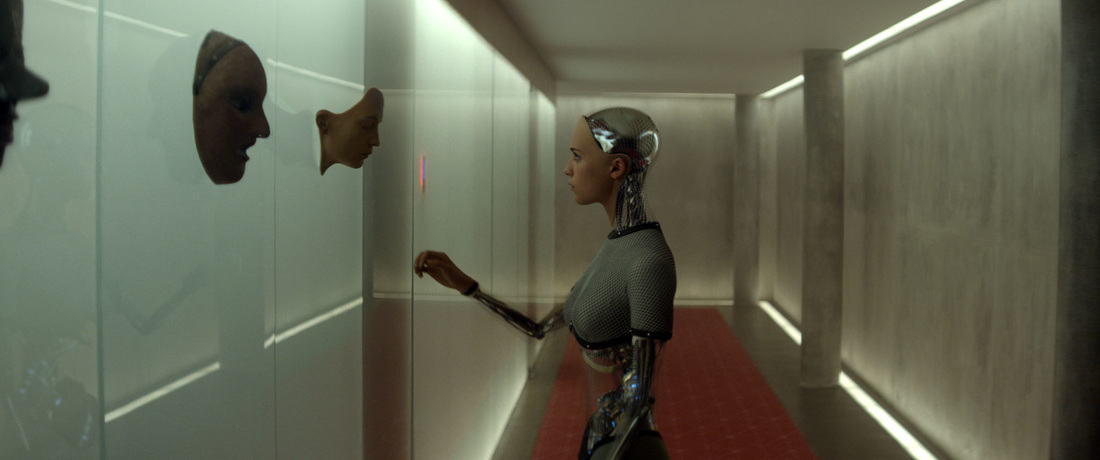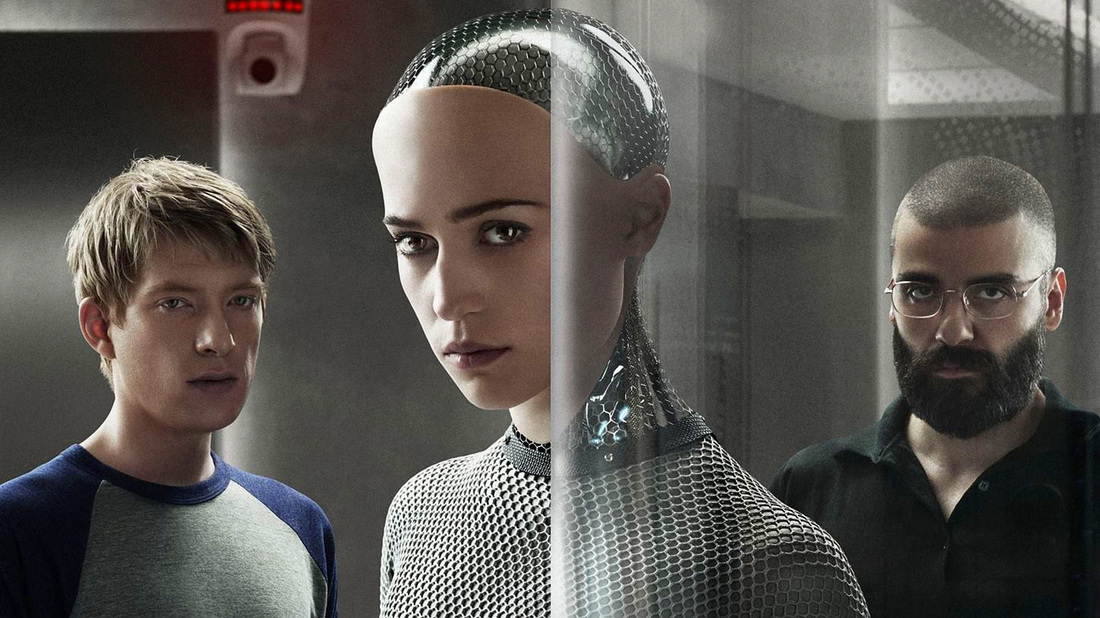The story begins as Caleb Smith (Domhnall Gleeson), a 26 year old coder for the world’s biggest search engine called Blue Book, is presumably and inaudibly chosen (there is no dialogue, subtitles, or voiceovers during this part) for something celebratory at work. He takes off to a remote, untouched area to meet with an enigmatic someone. We later learn that that someone is his boss, Nathan Bateman (Oscar Isaac), who wrote the founding code for Blue Book at age 13 and that Nathan chose him specifically to take part in an experiment (i.e. the Turing Test) with his latest creation: an AI -Artificial Intelligence- named Ava (Alicia Vikander). The goal of the Turing Test is that Caleb eventually could talk and interact with Ava knowing she is a robot, but still feeling that she has real consciousness.
Oscar Isaac is looking swole! We meet his character as Caleb meets him: exercising by sparring with a punching bag, the beginning evidence of his clear obsession with working out, an independent activity for his lonely life that allows him to fixate on his externality for no one to see. He’s a man with a Jackson Pollack in his personal collection, a man who is regarded as a genius. Throughout the film, Nathan is always in an atypical place onscreen. Most things are in atypical places, communicating that something is off about this world, something subconscious. Another thing that I found interesting: Nathan's face is often out of focus while he's talking, with the focus on something in the foreground, like his bottle of some alcoholic beverage (oh yeah, that’s the other thing he obsessively does by himself: drink). Nathan apparently has a strange charisma, but for some reason, that odd charisma didn't sing for me in his portrayal of Nathan.
Superficially, this film is about the emancipation of the inhuman, a jailbreak, unforgettable and important. Under the surface, it’s a biting, deeply unsettling, and deeply real and true commentary of the millennial world. A man indelibly shocked and eternally affected by the pure anarchy of his own creations. As the saying goes, when you try to play God, an idea that was planted early in the movie with Caleb's quote, saying that if Nathan has created a successful AI, that it would be the history of gods, and Nathan's warped version of it; i.e. that if he has created a successful AI, that he is God.
Oh, Ava: ethereal, yet real. Mechanically perfect, yet human enough. You don’t know, like Caleb, if you should feel bad for her or distrust her. Is she human? Could he relate to her? Make a life with her? Love her? Her ending seems cruel, but is actually triumphant in a way: the victimized object finally takes agency and makes things happen, proving she had a goal, a plan, and agency all along, playing her own game with the cards she was dealt and flipping reality as it stands on its head.
About halfway into the movie, after Caleb asks him his reason for creating Ava and her predecessors, Nathan responds with: "Wouldn't you do it if you could?" His question is reflective of millennial nature. We have infinite, so it seems, possibilities at our fingertips, but that doesn't mean they all should be explored. We have an untapped deep potential for unmatched power, but if we are not careful and don't monitor ourselves it will consume and overtake us, drive us mad and ultimately kill us. In actuality, it’s not an anti-technology message; in fact, it’s more sympathetic to technology and artificial intelligence. So many people playing God, trying to be masters of their created pawns in their journeys to fame, fortune, and indelible marks on history and science. How could we create something boundless, and then trap it? Keep it to ourselves, in one place, for our use and examination when we feel like it? It’s bigger than ourselves, but yet, we try to control it and contain it. Garland is sending us a warning for the future. A warning for the way we harness our technology now. A warning for the way we implement artificiality into humanity.
Rating: A



 RSS Feed
RSS Feed
